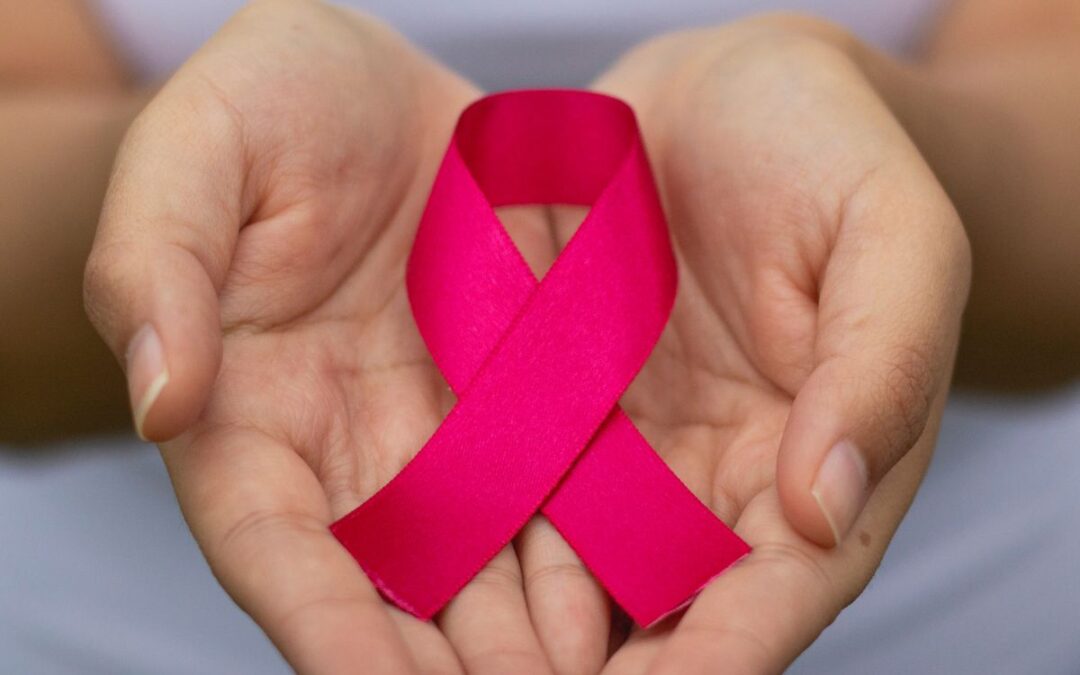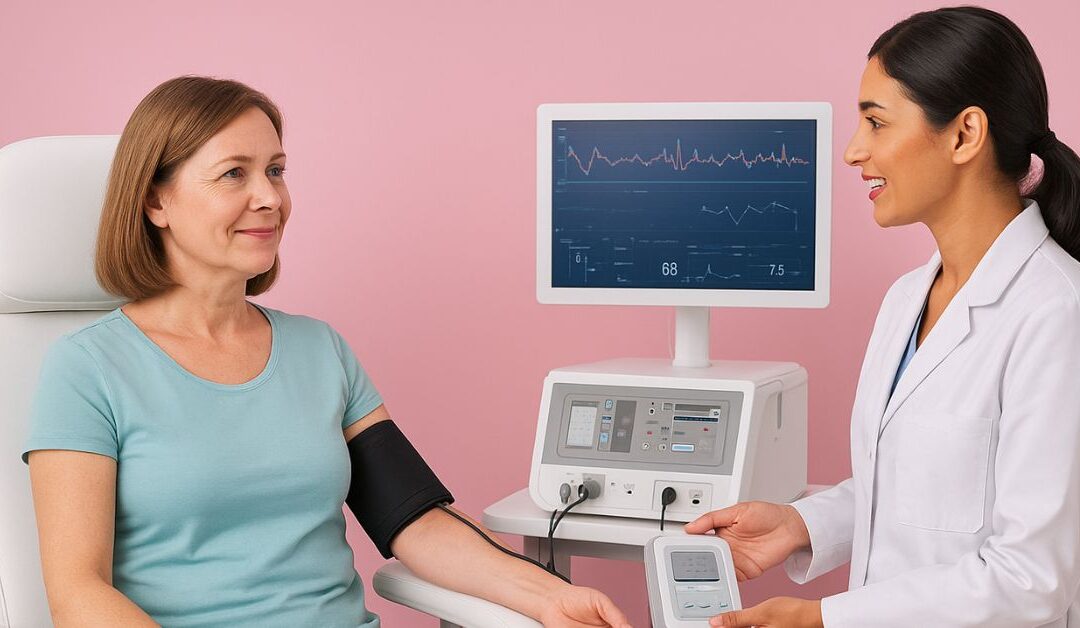
by SXHH Marketing | Dec 12, 2025 | Hormone Replacement Therapy, Menopause, Wellness
For years, menopausal hormone therapy carried a warning label that did more than flag risk. It shaped perception. It ended conversations before they started. For many women, it quietly reinforced the idea that relief came with a price that was simply too high.
The FDA has now removed the black box warning from certain menopausal hormone therapy products, and the significance of that change goes beyond labeling. It signals a long-overdue recalibration in how women’s hormone care is understood.
How we got here
The warning traces back to the Women’s Health Initiative studies published in the early 2000s. Those findings linked specific hormone therapies to increased risks of blood clots, stroke, and breast cancer in certain populations.
What mattered then, and still does, is context.
The study primarily examined older women, often more than a decade past menopause, and prescribed oral hormone formulations that reflected clinical norms of the time. The results were meaningful, but their application became sweeping. A single narrative took hold, flattening nuance and leaving little room for clinical judgment or individual variation.
Why the warning no longer made sense
Two decades later, menopausal hormone therapy looks fundamentally different.
Research has continued. Clinical practice has evolved. The conversation around timing, formulation, dosing, and patient selection has grown more precise. We now understand that hormone therapy initiated closer to menopause carries a different risk profile than therapy started years later. We understand that delivery method matters. We understand that cardiovascular and metabolic health cannot be separated from hormone decisions.
The FDA’s decision to remove the black box warning reflects this accumulation of knowledge. It acknowledges that the label no longer aligned with how menopausal hormone therapy is prescribed or evaluated today.
Why this matters to women now
The black box warning informed, but it also created fear in women who could have benefited from HRT.
For many women, it became shorthand for danger, reinforcing hesitation even as symptoms mounted. Brain fog. Disrupted sleep. A persistent sense of being off balance. Mood changes that felt unfamiliar. A body that no longer responded the way it once did.
The removal of the warning does not suggest that hormone therapy is universally appropriate. What it does is restore the possibility of discussion without fear of being the loudest voice in the room.
What has not changed
Hormone therapy remains a medical intervention that requires discernment.
Women considering menopausal hormone therapy should expect:
-
An individualized medical evaluation
-
Careful attention to health history and risk factors
-
Dosing that reflects both symptoms and physiology
-
Ongoing monitoring over time
The shift is not toward casual prescribing. It is toward care that reflects current science rather than outdated generalizations.
Where HerKare stands
At HerKare, menopausal hormone therapy is approached as a collaborative, patient-focused process. Care is shaped by how a woman feels, what her labs reveal, and how her health evolves.

by SXHH Marketing | Oct 23, 2025 | Hormone Replacement Therapy, Menopause, Sleep, Wellness
Every October, National Menopause Awareness Month encourages women to understand the changes happening in their bodies, and to know that help and hope are available.
Menopause is a natural life stage, but that doesn’t mean it’s easy to navigate. At HerKare, we believe every woman deserves care, compassion, and accurate information during this transition.
What Is Menopause?
Menopause marks the end of a woman’s menstrual cycles, confirmed after 12 months without a period. The average age is 51, but symptoms can begin years earlier during perimenopause.
As estrogen and progesterone levels fluctuate, your body may react in ways that feel unfamiliar. Recognizing these changes early can make them easier to manage.
Common Signs and Symptoms
-
Hot flashes or night sweats
-
Irregular or missed periods
-
Mood changes or anxiety
-
Fatigue and low motivation
-
Vaginal dryness or discomfort
-
Weight gain or slower metabolism
-
Hair thinning or dry skin
-
Memory lapses or “brain fog”
Every woman’s experience is unique. Some may only notice mild changes, while others face symptoms that affect sleep, work, and relationships.
Why Menopause Awareness Matters
For decades, conversations about menopause were quiet, even taboo. Women were told to “push through.” Today, Menopause Awareness Month reminds us that these symptoms are real—and treatable.
When hormones decline, it can impact bone health, heart health, metabolism, and mental well-being. Awareness leads to proactive care and better long-term health.
“At HerKare, our message is simple: Menopause isn’t the end of feeling like yourself—it’s a new beginning,” says Michael Seay, MSN, APRN, NP-C. “When you understand your hormones, you can take control of your energy, mood, and confidence again.”
How HerKare Can Help
HerKare offers a full spectrum of care for women in perimenopause and menopause, including:
-
Comprehensive hormone testing
-
Individualized hormone replacement therapy (HRT)
-
Lifestyle and nutrition guidance
-
Ongoing follow-up care to track progress and fine-tune your treatment
Our goal is to help you rediscover balance, clarity, and comfort, so you can feel strong and joyful through every stage of life.
This Menopause Awareness Month, make yourself a priority. Schedule a free consultation and start feeling like you again.

by SXHH Marketing | Oct 15, 2025 | Hormone Replacement Therapy, Menopause, Wellness
Every October, we come together to honor those affected by breast cancer and to raise awareness that empowers women, not frightens them.
At HerKare, we know that breast cancer awareness also means supporting women’s confidence in their health choices. One of the biggest sources of confusion and fear is hormone replacement therapy (HRT) and whether it increases breast cancer risk.
It’s a complicated topic, and it’s easy to feel torn between wanting relief from menopausal symptoms and wanting to protect your long-term health. So this Breast Cancer Awareness Week, let’s look at the real science behind HRT and separate fear from fiction.
Myth 1: “HRT Always Causes Breast Cancer”
Fact: The truth is more nuanced. Some forms of HRT, especially those that combine estrogen and progesterone, have been shown to slightly increase the risk of breast cancer when used long-term (usually more than five years).
However, estrogen-only HRT, which is prescribed to women who’ve had a hysterectomy, has not shown the same increase. Some studies even suggest it might lower risk in certain cases.
And here’s the important part:
When therapy is stopped, the risk gradually returns to normal over the next few years.
Myth 2: “If You Have a Family History of Breast Cancer, HRT Is Off-Limits”
Fact: A family history doesn’t automatically disqualify you from using HRT.
For many women, especially those using short-term, low-dose therapy, the added risk is minimal, even with family history.
Your provider can help you understand your personal risk profile and choose a plan that works for your body and your comfort level.
Myth 3: “All HRT Is the Same”
Fact: Hormone therapy isn’t one-size-fits-all.
The type of hormones, the way they’re delivered (pill, patch, gel, or cream), and the dose all make a difference.
For example, transdermal estrogen (through the skin) and bioidentical hormones may offer similar benefits with a lower impact on breast cancer risk compared to some older formulations.
Myth 4: “Once You Take HRT, You’ll Always Be at Higher Risk”
Fact: Thankfully, that’s not true.
After stopping HRT, most women’s breast cancer risk returns to baseline within about five years, and often sooner for those who used lower doses.
Myth 5: “Estrogen-Only HRT Is Completely Safe”
Fact: While estrogen-only HRT carries less breast cancer risk, it can increase the risk of uterine cancer in women who still have their uterus, which is why progesterone is added for protection.
The safest HRT plan depends on your complete medical history, which is why individualized care is most important.
People Also Ask
Q: Does HRT increase my risk of breast cancer?
A: Some types may slightly increase risk after several years, especially estrogen-progestin therapy. Estrogen-only therapy has a lower risk profile.
Q: Can women with a family history of breast cancer use HRT?
A: Often, yes, but it’s vital to begin with a personalized plan and close monitoring. Discuss your risk level and hormone options with your healthcare provider.
Q: Does HRT affect mammograms or breast density?
A: It can temporarily increase breast density, which can make imaging less clear. Regular screenings help ensure accurate results.
Q: How long can I safely stay on HRT?
A: Most women can use HRT safely for 3–5 years, though some continue longer under medical supervision if the benefits outweigh the risks.
A Word from Our Medical Team
“At SynergenX, we believe women deserve the full picture — not fear. The risks of hormone therapy are often overstated, and with the right supervision, HRT can help women feel healthy, balanced, and vibrant through menopause and beyond.”
— Michael Seay, MSN, APRN, NP-C
The Bottom Line
For many women, HRT can safely ease the symptoms of menopause (improving sleep, focus, energy, and mood) while the associated breast cancer risk remains small, temporary, and manageable.
If you’re struggling with hot flashes, mood swings, or other menopause symptoms but worried about HRT, remember this:
Knowledge is empowerment. Your provider’s job is to help you find balance, not make you choose between comfort and safety.
This Breast Cancer Awareness Week, take time to schedule your screenings, learn your options, and make informed decisions about your health, your way.
Sources
- Beral V. et al. Type and timing of menopausal hormone therapy and breast cancer risk. The Lancet. 2019;394(10204):1159–1168. The Lancet
- National Institute for Health and Care Research. Risk of breast cancer with HRT depends on therapy type and duration. NIHR Evidence
- NHS. Benefits and risks of hormone replacement therapy (HRT). NHS UK
- Cancer Research UK. Does hormone replacement therapy increase cancer risk? CancerResearchUK.org
- BreastCancer.org. HRT and Breast Cancer Risk. BreastCancer.org
- ICR. Short-term HRT use and family history of breast cancer. icr.ac.uk

by SXHH Marketing | Sep 9, 2025 | Hormone Replacement Therapy, Menopause, Sleep, Uncategorized, Wellness
Hormone changes can leave you feeling tired, unfocused, or not quite yourself. At HerKare, we help women restore balance and vitality with hormone replacement therapy (HRT), designed to support energy, mood, bone health, and sexual wellness. And right now, every *free* consultation also enters you into the TRT MVP Giveaway, your chance to win signed memorabilia, tickets, and more this season.
1. Restoring Energy & Vitality
Declining estrogen during perimenopause and menopause can trigger fatigue, hot flashes, and poor sleep quality. These changes affect day-to-day energy and long-term wellness.
-
HRT restores estrogen levels, which can improve sleep, reduce hot flashes, and increase daytime energy.
-
Research shows that women on HRT report higher vitality and improved quality of life compared to untreated peers.
With restored hormone balance, many women feel more energized and capable of meeting daily demands.
2. Supporting Mood & Mental Clarity
Hormonal changes can contribute to mood swings, anxiety, and “brain fog.”
-
The North American Menopause Society (NAMS) notes that estrogen therapy can help improve mood and cognitive symptoms in some women.
-
Clinical studies have shown reduced depressive symptoms and improved mental clarity in women using HRT during menopause.
HRT may not replace lifestyle approaches like stress management, but it provides an important foundation for emotional stability.
3. Sexual Health & Confidence
Low hormones often impact intimacy—leading to vaginal dryness, pain with intercourse, or decreased libido.
-
Estrogen therapy restores vaginal tissue health, improves lubrication, and relieves discomfort.
-
In some cases, adding low-dose testosterone has been shown to improve sexual desire and arousal in women experiencing hypoactive sexual desire disorder (HSDD).
-
Restored sexual wellness often translates to greater confidence and improved quality of life.
4. Bone Health & Physical Resilience
Estrogen plays a critical role in maintaining bone density. After menopause, the rapid drop in estrogen accelerates bone loss, increasing the risk of osteoporosis.
-
HRT has been shown to significantly reduce bone loss and fracture risk in postmenopausal women.
-
By strengthening bone mineral density, HRT helps preserve physical resilience and long-term independence.
5. The Role of Androgen Therapy for Women
Though HRT is most often estrogen-plus-progestogen, some women may also benefit from small amounts of testosterone therapy.
-
Studies show that low-dose testosterone in women can improve energy, sexual function, and muscle tone, though research on long-term safety continues.
-
For some women, this carefully tailored addition helps restore performance across physical, emotional, and sexual health.
Why Women Choose HerKare
At HerKare, our providers focus on personalized hormone care that addresses your whole health:
-
Comprehensive labs and medical evaluation.
-
Custom-tailored HRT plans (estrogen, progesterone, and/or testosterone when appropriate).
-
Ongoing monitoring to ensure safety and results.
And this season, every free consultation enters you into the TRT MVP Giveaway, your chance to win signed sports memorabilia, game tickets, and more.
Book your free HRT consultation today at your nearest HerKare clinic and take the first step toward feeling balanced, confident, and strong again.
References
-
The North American Menopause Society. “The 2022 Hormone Therapy Position Statement.” Menopause. 2022.
-
NIH: National Institute on Aging. “Menopause: Medicines to Help You.” 2021.
-
Mayo Clinic. “Hormone Therapy: Is it right for you?” 2022.
-
Rossouw JE, et al. “Risks and benefits of estrogen plus progestin in healthy postmenopausal women.” JAMA. 2002.
-
Kingsberg SA, et al. “Global Consensus Position Statement on the Use of Testosterone Therapy for Women.” Climacteric. 2019.
-
Cauley JA, et al. “Effects of Estrogen Replacement Therapy on Bone Mineral Density in Postmenopausal Women.” NEJM. 2003.
-
Santoro N, et al. “Menopausal symptoms and hormone therapy use in women.” Endocr Rev. 2015.

by SXHH Marketing | Aug 28, 2025 | Hormone Replacement Therapy, Wellness
This fall, HerKare is proud to team up with SynergenX and Low T Center to offer the TRT MVP Campaign, a fun way for patients to take charge of their health and have the chance to win prizes along the way. The campaign runs from September 1 through December 31, 2025, and it’s open to both men and women.
Whether you’re interested in testosterone replacement therapy (TRT) or hormone replacement therapy (HRT), your consultation could be your ticket to weekly, monthly, and even grand prize drawings.
How to Enter
New Patients (Women & Men)
-
Schedule and complete a free, 15-minute consultation for HRT or TRT at HerKare, SynergenX, or Low T Center.
-
Book through the official entry form at www.trtmvp.com to qualify.
Existing Patients
-
Follow HerKare, SynergenX, or Low T Center on Instagram or Facebook.
-
Share the official TRT MVP Campaign post to your Feed or Stories.
-
Tag or mention HerKare, SynergenX, or Low T Center in your post to complete the entry.
💡 Tip: The earlier you enter, the more chances you’ll have to win. One entry is good for the entire campaign.
What You Could Win
Over the course of the campaign, we’ll award up to 180 prizes, including:
-
Weekly Prizes: Gift cards and smaller signed memorabilia
-
Monthly Spotlight Prizes: Larger memorabilia items
-
Grand Prizes: Sports tickets (local, semi-pro, or professional, chosen at Sponsor’s discretion)
⚠️ Please note: Memorabilia is provided as-is and may not include certificates of authenticity.
Winner Notifications
-
Winners will be selected randomly from all eligible entries.
-
Drawings will occur weekly and monthly throughout the campaign.
-
Winners will be notified by email or text and must respond within 7 business days to claim their prize.
Important Details
-
No purchase necessary. Free entry is available.
-
Open to U.S. residents 24 years and older.
-
Employees, officers, and directors of HerKare, SynergenX, or Low T Center (and their immediate families) are not eligible.
-
This giveaway is not sponsored, endorsed, or affiliated with the NFL, NBA, MLB, NHL, NCAA, or any professional sports team or league.
Take the First Step
At HerKare, we believe in helping women feel their best through personalized, supportive care. This campaign is about more than prizes—it’s about taking the time to focus on your health.
Schedule your free HRT consultation today, and you’ll also secure your entry into the TRT MVP Giveaway.
Get started now at www.trtmvp.com

by SXHH Marketing | Aug 26, 2025 | Aesthetics, Hormone Replacement Therapy, Sleep, Weight Loss, Wellness
At HerKare, we understand that hormone symptoms often don’t tell the whole story. Fatigue, mood changes, brain fog, weight fluctuations—these can all be linked to hormones, but they may also be influenced by how your body’s systems work together. That’s why we go beyond standard lab work and use advanced testing, including Autonomic Nervous System (ANS) evaluations, to help us see the bigger picture of your health.
What Is ANS Testing?
Your Autonomic Nervous System (ANS) controls many automatic functions in your body, such as heart rate, blood pressure, and how you respond to stress. ANS testing is quick, non-invasive, and gives us valuable information about how well your body regulates these functions.
For women experiencing hormone imbalance, menopause, or perimenopause, ANS testing helps us identify how these changes may be affecting your overall health—not just your lab results.
Why It’s Important for Women’s Hormone Therapy
Hormones don’t act in isolation. They work within your entire body’s system. By combining ANS results with hormone labs, we can:
-
Personalize Care – Create treatment plans tailored to your unique physiology.
-
Support Safety – Identify potential concerns before starting therapy.
-
Improve Outcomes – Fine-tune hormone therapy to match your body’s needs more precisely.
This approach helps ensure that your treatment isn’t a one-size-fits-all prescription, but a plan that truly supports your health and well-being.
The HerKare Difference
We know women want answers—and solutions that actually work. At HerKare, our providers use advanced testing like ANS evaluations to go deeper into the “why” behind your symptoms. This gives us the information we need to provide thoughtful, personalized care that helps you feel more like yourself again.
Because at HerKare, your health is more than just numbers on a chart—it’s about your quality of life.
People Also Ask
What is ANS testing at HerKare?
ANS testing measures how your nervous system regulates important functions like heart rate and blood pressure. It helps us better understand your overall health in relation to hormone balance.
Is ANS testing safe and quick?
Yes. It’s non-invasive, takes only a few minutes, and gives providers valuable insight to guide your care.
Do I need ANS testing before hormone therapy?
At HerKare, yes. We include ANS testing as part of our comprehensive evaluation, ensuring your treatment is tailored to your full health profile.
How does this help with menopause or perimenopause care?
By looking beyond hormone levels, we can see how your body responds to changes, helping us adjust your therapy for maximum comfort and results.
Book your consultation today and see what HerKare can do for you.






